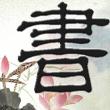
治理什么样的国家,怎样治理国家(英)
内页干净无笔记
¥ 8 九品
仅1件
重庆巴南
认证卖家担保交易快速发货售后保障
作者李君如 著;外文出版社英文编部 译
出版社外文出版社
出版时间2018-04
版次1
装帧平装
货号17-11-11-189
上书时间2024-09-26
- 在售商品 暂无
- 平均发货时间 6小时
- 好评率 暂无
- 最新上架
商品详情
- 品相描述:九品
图书标准信息
- 作者 李君如 著;外文出版社英文编部 译
- 出版社 外文出版社
- 出版时间 2018-04
- 版次 1
- ISBN 9787119114132
- 定价 90.00元
- 装帧 平装
- 开本 16开
- 纸张 胶版纸
- 页数 182页
- 正文语种 英语
- 丛书 读懂中国
- 【内容简介】
-
To better understand the past lustory of China, one also needs to understand China's modern day hustory, especially the modern China of President Xijinping's era.
I recall a time at the beginning of September 2016. I was a consultant for China International Culture Exchange Center (CICEC); I was leading a team of visitors to Kazakhstan and Turkey. My purpose during the visit was to research how to promote cultural exchanges and mutual understanding between China and other countries involved in the Belt and Road Initiative while building the Silk Road Economic Belt. During our interviews and discussions, we noted that most people, except for scholars in the related fields (such as orientalist scholars), had little knowledge about Of interest in the history value of cultural exchanges between China and the Central and Western Asian regions. What they were interested in was today's China. "Today's China" refers to China since its feform and opening up in 1978, especially China under the leadership of Xi Jinping. Topics of interest included the differences between today's China and the China of Mao Zedong's era, especially what China's market economy is like, why China is developing so rapidly, whether China's polarization is as sevefe as Western media has feported, why corruption is breeding in China and whethef Xijinping is capable of finding a solution. - 【作者简介】
-
Li Junru,a former vice president of the Central Party School. research fellow, Ph.D. supervisor, and recipient of the special government allowance awarded by the State Council. He is also a member of the Advisory Committee of the "Marxist Theoreti,cal Research and Development Project", a member of the lOth CPPCC National Committee (2003-2008), and a member of the Standing Committee of the llth CPPCC National Committee (2008-2013). Currently, he is chairperson of the Federation of Returned Overseas Chinese of Departments Directly under the CPC Central Committee and vice president of the China Society for Human Rights Studies (CSHRS). He has published dozens of books, including Renewal of Concepts. Among his publications, "Mao Zedong Research Trilogy" - consisting of Mao Zedong and Modern China, Mao Zedong and Contemporary China, and Mao Zedong and Contemporary China After His Era - won the China Book Award in 1998. He has also published seve ral hundred papers, including "Deng Xiaoping's Theory of Governing China", Among these papers, "Deng Xiaoping's Theory of Socialism with Chinese Characteristics" and "Deng Xiaoping's Management Ideas and Leadership Art" won the Out,standing Research Paper Award in 1991 and 1992 respectively. He was selected as one of the Top 100 Talent for China's Development in 2005. He was also presented with the Award for Outstanding Contributions to the AIDS Response by
UNAIDS, and the Golden Kangaroo Award ofAustralia in 2008.
He was named one of the scholars of the year with the strongest influence in China in 2017. - 【目录】
-
Foreword
Chapter 1 A Key to Understanding Modern China
The Debut of Xi.linping: The Governance of China (Vol. 1) at the 2014 Frankfurt International Book Fair
Heated Discussion on Xi Iinping: The Governance of China by Readers Around the World
Framework of Xijinping: The Governance of China Deserving Special Attention
Chapter 2 Governing a Big Country Is as Dehcate as Frying a Small Fish
The Adage of Lao Zi
The First Step from November 15, 2012
Challenges of "Becoming Active
Issues Arising from IT Application
The Logic of Historical Dialectics
Chapter 3 Convictions, ldeals, and Goals
Questioning of the Subject of State Governance and Warning of "Lack of Backbone"
Debate on Faith, Ideals, and Convictions
Where From and Where To
Overall Plan and Strategic Plan
New Challenges and the Confidence in the Path, Theory, System, and Culture with Chinese Characteristics
Chapter 4 Governance of the Party, the Country, and the Millilitary
Three Canvassing Bribery Cases that Shocked 2hongnanhai
Strict Governance over the Party, a Prerequisite for the Governance of the Country
Party Development Through Ideological Work and Institution Building
Govern the Party and the Military with Strict Discipline
Leading by Example: Improving Intraparty Political Activities
Chapter 5 Institutions, System, and Capacity for Governance
"Only the Wearer of the Shoes Knows If They Fit or Not
Institutional Modernization Initiated at the Third Plenary Session of the 18th CPC Central Committee
Relationship Between the System and Capacity of State Governance
……
Chapter 6 Democracy, Rule of Law, and Rule of Virtue
Chapter 7 The CPC's Leadership in Coordinating Government, Market, and Society
Chapter 8 Governance for the People
点击展开
点击收起
相关推荐
— 没有更多了 —





















以下为对购买帮助不大的评价